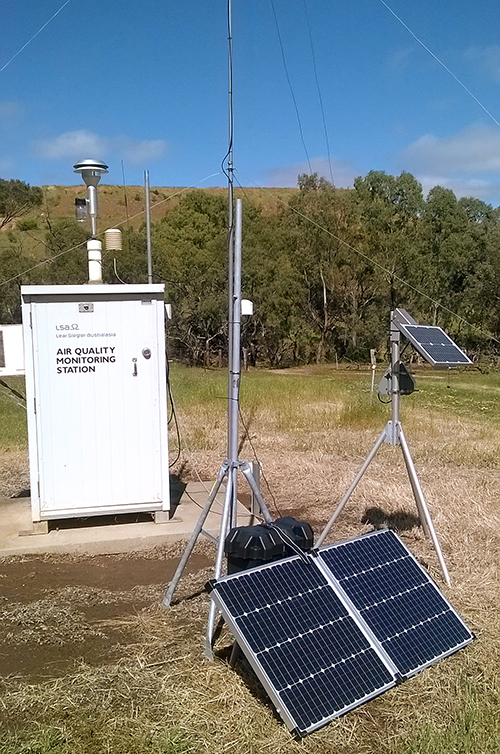Using calibration models to improve reliability.
The Department for Energy and Mining has sponsored and worked with the University of South Australia's (UniSA's) nationally leading Mathematics Clinic program throughout 2021. The project was to develop sophisticated calibration models for optical air quality monitors.
Dust is often an environmental risk in mines and quarries, especially when they are close to residential properties. Dust makes up a large percentage of complaints received.
Optical monitors are significantly less expensive than the standard gravimetric monitors used for air quality monitoring in mining; however, they are often less accurate and can underestimate the levels of dust.
The department, in collaboration with members of South Australia’s extractives industries, provided data from side-by-side optical and gravimetric monitors and current weather measurements. The Maths Clinic team explored a range of modelling techniques to calibrate data from the optical monitors to match as closely as possible with the more accurate gravitational monitors.
Members of the team, with the support of their academic coaches and departmental liaisons, have successfully developed models that improve the accuracy and usefulness of optical monitors for both regulatory and dust management purposes.
The final report was submitted to the department in late 2021. Once reviewed, the results will be passed on to industry.

Air quality monitoring station, Kanmantoo Mine. (Photo 418483)
About the UniSA Mathematics Clinic
The only program of its kind in Australia, the clinic is modelled on the internationally -recognised approach developed by the Harvey Mudd College (HMC) in California. To date, over 1,500 HMC Clinic projects sponsored by more than 450 organisations have been completed, including over 150 projects in mathematics. Past UniSA company projects have included the Department for Energy and Mining, Santos, BHP, logistics and energy companies, and more.
The UniSA Mathematics Clinic enables businesses to engage final-year UniSA mathematics, statistics and IT students to work on a relevant challenge, providing a cost-effective solution for significant professional projects. Over the duration of the academic year, a team of students undertake the prescribed logistical project, such as financial modelling, scheduling, data analytics, statistical analysis, stochastic modelling or environmental modelling. Students receive hands-on coached experience in their final year of study, and businesses benefits from fresh insight into issues, along with the opportunity to train the next generation of bright young minds.
For more information contact Professor Lesley Ward, Director Mathematics Clinic, Lesley.Ward@unisa.edu.au
– Ross Stevens, March 2022


